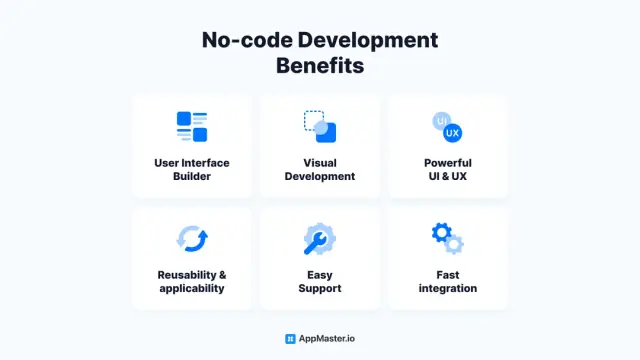Startup Legal Essentials: Choosing the Right Business Structure
Discover the key legal aspects of choosing the right business structure for your startup. Learn the pros and cons of various structures and how they impact your growth and success.

Why Choosing the Right Business Structure Matters
Choosing the right business structure is one of the most important legal decisions entrepreneurs face when launching a startup. Your choice of structure directly impacts your legal liability, taxation, capital structure, decision-making processes, and your company's long-term growth potential. Selecting the wrong structure can lead to unforeseen complications down the road, such as increased tax liabilities or personal exposure to business losses and legal claims.
For most entrepreneurs, the available options boil down to the following business structures: sole proprietorship, partnership, limited liability company (LLC), corporation (C or S corporation), and B corporation. Each structure has its own advantages and disadvantages, shaped by factors such as the nature of your business, your goals, size of your team, and your overall vision for your startup.
In this article, we'll explore the various business structures and highlight the key aspects that entrepreneurs should consider when making this pivotal decision. By understanding the implications of these choices, you'll be better equipped to set your startup on a solid legal footing and optimize its growth potential.
Sole Proprietorship: Simplicity vs. Personal Liability
A sole proprietorship is the simplest business structure and often the ideal choice for solo entrepreneurs who are just starting their business. It requires minimal paperwork, and all profits and losses are reported on the owner's personal tax return. This structure doesn't involve any legal distinction between the business and its owner, which means the owner bears all responsibility, including legal and financial obligations.
Advantages of a sole proprietorship:
- Simple and low-cost setup - no need to register as a separate legal entity
- Complete control and decision-making authority for the business owner
- Easy tax filing as the business income and expenses are reported on the owner's personal tax return

Disadvantages of a sole proprietorship:
- Personal liability - owners are personally responsible for all business debts, obligations, and liabilities, which may put personal assets at risk
- Difficulty raising capital - investors generally prefer more formal business structures
- Limited growth potential as the business and its owner are considered the same entity
If you're just starting your entrepreneurial journey and have limited resources or capital requirements, a sole proprietorship may work well for you. However, keep in mind that the simplicity of this structure comes with potential risks, particularly when it comes to personal liability. If your startup begins to grow or experiences legal issues, you may want to consider transitioning to a more protective business structure.
Partnerships: Collaborating for Success
A partnership is a business structure involving two or more people who agree to share in the profits, losses, and management responsibilities of the company. There are two main types of partnerships: general partnerships (GP) and limited partnerships (LP).
In a general partnership, all partners have equal decision-making rights and are personally liable for the business's debts and liabilities. In a limited partnership, there is a mix of general and limited partners. General partners have decision-making authority and personal liability, while limited partners act as passive investors with no management involvement, limiting their liability to the extent of their investment.
Advantages of partnerships:
- Collaborative decision-making and shared workload
- Increased access to capital through multiple owners
- Flexibility in splitting profits, work, and financial contributions according to the partnership agreement
- Pass-through taxation, meaning business profits are reported and taxed on each partner's personal tax return, avoiding corporate income tax
Disadvantages of partnerships:
- General partners face personal liability for the business's debts and liabilities
- Potential for disputes among partners, which may affect the business's operations
- Less control over business decisions in comparison to sole proprietorship
Partnerships can work well for startups planning to work with multiple owners who bring complementary skills and resources. However, it's crucial to establish a clear partnership agreement outlining each partner's responsibilities, profit sharing, and liability. If you choose a partnership structure, be prepared to relinquish some control over decision-making and face potential personal liability if things go wrong.
Limited Liability Companies (LLCs): Flexibility and Protecting Personal Assets
A Limited Liability Company (LLC) is a popular choice for startups, thanks to the flexibility it offers and the legal separation between the owners and the business. This unique combination makes it an attractive business structure for many entrepreneurs who are just starting a new company.
LLC owners, often referred to as members, are granted limited personal liability protection, meaning that their personal assets are protected from business debts and liabilities. This advantage helps reduce the financial risk for owners in case the startup faces financial challenges or legal claims.
From a taxation standpoint, an LLC can choose to be taxed as a pass-through entity. In this case, the company's profits and losses are only reported on the owner's personal income tax return. This avoids double taxation, as occurs with C corporations, where the business's profits are taxed at the corporate level and then again at the personal level when profits are distributed as dividends to shareholders.
Moreover, an LLC structure offers management flexibility. It can be managed by its members, in a member-managed LLC, or by designated managers, in a manager-managed LLC. This allows for adapting the management style to the needs and preferences of the owners.
However, there are some limitations to the LLC structure. Raising capital can be more challenging than with a corporation, as the LLC cannot issue stocks to attract investors. Another disadvantage is that members of the LLC may be subject to self-employment taxes.
Nonetheless, the benefits of an LLC make it a popular choice for many startups looking for a structure that offers flexibility, limited personal liability, and favorable taxation options.
Corporations: Building a Scalable Entity with Shareholder Investment
Corporations provide a more rigid and formalized business structure compared to LLCs, but they also offer the potential for significant growth and investment by issuing stocks. This makes corporations a more suitable option for startups aiming for rapid growth, large-scale investments, and a more traditional corporate governance structure.
Corporations are considered separate legal entities from the owners (shareholders) and offer the strongest personal liability protection, meaning that shareholders are not personally responsible for the corporation's debts and liabilities. This feature can be particularly advantageous when starting a business with substantial potential risk or when requiring large capital investments.
Taxation for corporations, however, can be more of a burden than with LLCs. Specifically, C corporations, the default classification for corporations, experience double taxation. This means that the corporation pays tax on its profits, and shareholders subsequently pay taxes on the dividends they receive from the corporation.
In terms of management, corporations have a stricter and more regulated structure, including a board of directors responsible for overseeing the company's long-term strategy and a management team responsible for daily operations. This hierarchical structure may appeal to some entrepreneurs, but others may prefer the flexibility of an LLC.
An essential aspect of corporations is their ability to issue stocks to raise capital, which can be important for scaling a startup quickly. Stocks can be issued to investors through private placements, or eventually, through an initial public offering (IPO), generating significant funds for the company's growth and expansion.
Ultimately, corporations are a suitable business structure for ambitious startups with plans for rapid growth and the need to attract large-scale investments.
S Corporations: Combining LLC Simplicity with Corporate Features
An S Corporation is a unique business structure that combines several features of an LLC and a C Corporation. It offers pass-through taxation, like an LLC, alongside certain corporate governance aspects of a corporation. This hybrid structure can be an attractive option for startups looking for a balance between these two forms, particularly those seeking to avoid the double taxation issue faced by C Corporations.
To qualify as an S Corporation, the company must meet specific criteria set by the Internal Revenue Service (IRS). These requirements include being a domestic corporation, having no more than 100 shareholders, and only issuing one class of stock. Additionally, all shareholders must be U.S. citizens or residents.
While S Corporations have pass-through taxation, avoiding double taxation, they are subject to several restrictions that may make them less appealing for some startups. For example, the limitations on the number of shareholders and stock classes can make raising capital more challenging and may not suit startups with plans for rapid growth and investment.
It's worth noting that an S Corporation is not a standalone business structure but rather a tax status that qualified companies can elect. If a business does not meet the requirements, it will default to being taxed as a C Corporation.
In conclusion, S Corporations can offer a middle ground between the simplicity of an LLC and the more formal structure of a corporation, providing an appealing option for startups looking for the best of both worlds. However, the restrictions on shareholders and stock classes may limit their suitability for startups with significant growth goals and the need to raise substantial investments.
B Corporations: Prioritizing Ethics and Social Responsibility
B Corporations, also known as Benefit Corporations, are a relatively new type of business structure that combines the advantages of a traditional corporation with an added focus on social and environmental responsibility. Unlike standard corporations, B Corporations are legally required to consider the impact of their decisions on various stakeholders, including employees, customers, suppliers, community, and the environment.
Creating a B Corporation shows a commitment to ethical and responsible practices from the very beginning. This can be advantageous in attracting like-minded investors, customers, and employees who value these priorities. Additionally, B Corporations can still seek profits and grow, while ensuring that their core values remain central to their mission. To become a certified B Corporation, your startup must meet specific social and environmental performance standards, address public transparency, and comply with legal accountability requirements. This certification process is conducted by the non-profit B Lab, which independently evaluates and verifies the company's social and environmental performance. While B Corporations may have additional reporting and disclosure requirements compared to traditional corporations, these obligations can strengthen your startup's reputation as an ethical and sustainable leader in your industry.
Making the Choice: Factors to Consider When Selecting a Business Structure
Selecting the right business structure for your startup requires careful consideration of numerous factors that impact your long-term success, including:
Legal liability
Certain structures provide limited liability protection, ensuring that your personal assets are safeguarded from business debts and obligations. Corporations and LLCs offer this protection, while sole proprietorships and partnerships do not.
Tax implications
Different structures have varying tax treatments, and some even provide tax advantages. For instance, sole proprietorships and partnerships have pass-through taxation, while corporations are subject to double taxation unless they elect S Corporation status to address this issue.
Management structure
The organizational structure of your startup can affect your decision-making process, efficiency, and hierarchy. Corporations require a board of directors and specific governance procedures, whereas LLCs and sole proprietorships offer more operational flexibility.
Capitalization
Your startup's ability to access capital and attract investors depends on the business structure you choose. Corporations can issue stocks to raise funds, while LLCs rely on membership interests or loans.
Social and ethical values
If your startup prioritizes social and environmental responsibility, forming a B Corporation might align well with your mission and values.
Future growth and exit strategies
Consider your long-term goals for growth, potential mergers and acquisitions, or eventual sale of the company. Some structures might be better suited for these objectives, such as corporations or LLCs.
The Role of Legal and Financial Advisors
Given the complexity and potential long-term implications of choosing a business structure for your startup, it's highly recommended that you consult with legal and financial advisors. These professionals can help you navigate the potential challenges and opportunities that come with each type of structure and ensure that you make the best decision for your unique situation. Legal advisors can assist with understanding the liability protection, operational requirements, and regulations for each type of structure.
They can also guide you through the formation process and prepare necessary documentation, such as articles of incorporation, operating agreements, and bylaws. Financial advisors play a crucial role in evaluating the tax implications, capitalization, and growth opportunities associated with each structure. They can help you select the most tax-efficient structure, develop financial projections, and assess funding available to your startup. By leveraging the expertise of legal and financial advisors, you can make well-informed decisions about the right business structure for your startup. This choice will have lasting effects on the growth, success, and longevity of your business, making it essential to consider all aspects.
Finally, as your startup grows, using no-code platforms like AppMaster can help facilitate more-nimble operations. Implementing no-code tools early on can ensure that your startup remains scalable, acting as a key factor in advancing your growth trajectory.
Applying No-Code Technology to Simplify Startup Operations
Aside from choosing the right business structure, startups face a multitude of challenges on their path to success, including technology implementation, managing operations, and scaling their businesses. One way for startups to overcome these challenges is by leveraging the power of no-code platforms. No-code technology allows startups to develop and customize applications without the need for extensive coding expertise, saving significant time and resources.

One of the leading no-code development platforms, the AppMaster, offers a comprehensive suite of features and functionalities for businesses of all sizes, allowing them to create backend, web, and mobile applications with ease. By using no-code technology, startups can focus on their core business aspects and entrust the development of applications to user-friendly platforms like the AppMaster.
The Benefits of No-Code Platforms for Startups
- Speed up development: No-code platforms enable startups to create applications swiftly by leveraging visual development and drag-and-drop functionality. By removing the need for specialized coding skills, businesses can quickly implement applications and streamline their operations, reaching their goals at a faster rate.
- Reduce costs: Utilizing no-code platforms can lead to significant cost savings for businesses, as they eliminate the need to hire expensive developers or outsource development tasks. Startups can focus their funds on other essential aspects, such as marketing, sales, and customer acquisition.
- Increased agility: In the rapidly changing environment of technology and consumer preferences, agility is crucial for the survival and success of startups. No-code platforms facilitate quick iteration of applications, enabling startups to adapt and evolve with ease.
- User-friendly interface: With no-code platforms like the AppMaster, startups can take advantage of user-friendly design interfaces, which empower non-technical staff to contribute to the development of applications. This approach encourages collaboration, reducing the need for additional specialized personnel.
- Elimination of technical debt: The AppMaster platform ensures that businesses avoid technical debt by continuously generating applications from scratch whenever requirements are modified. This results in cleaner and efficient codebases, lowering the risk of future maintenance and update complications.
Integrating the AppMaster Platform into Your Startup Operations
The AppMaster platform is ideal for startups looking to create scalable backend, web, and mobile applications without the complications of traditional coding. With a range of subscription options, the platform accommodates businesses at various stages of growth, from free "Learn & Explore" packages for newcomers to advanced "Enterprise" offerings for large-scale projects. The AppMaster platform has been recognized by leading industry review platforms such as G2, who have named them a High Performer and Momentum Leader in categories like No-Code Development Platforms, Rapid Application Development (RAD), API Management, and more.
By using the AppMaster no-code platform, startups can achieve faster development cycles, cost-effective operations, enhanced agility, and fruitful collaborations between technical and non-technical teams. Ultimately, implementing no-code technology can provide startups with the competitive edge they need to thrive in today's fast-paced business environment.
FAQ
The main types of business structures are sole proprietorship, partnership, limited liability company (LLC), corporation, S corporation, and B corporation.
Startups should consider factors such as legal liability, taxation, management structure, capitalization, and social or ethical values.
Advantages of an LLC include limited personal liability protection, tax flexibility, and operational flexibility with fewer regulations and requirements than a corporation.
A corporation is a separate legal entity from its owners, offering more liability protection but with stricter regulations for management and governance. Stock ownership allows for easier investment and growth.
A B corporation is a legally recognized business structure that emphasizes social and environmental responsibility alongside traditional business pursuits.
No-code platforms like AppMaster simplify application development for startups, allowing them to build scalable backend, web, and mobile applications with little or no coding experience, saving time and resources.
An S corporation is a type of corporation that offers pass-through taxation. It is limited to 100 shareholders and has restrictions on stock classes, whereas a C corporation has no such limitations.
Consulting with legal and financial advisors ensures that you make informed decisions about the most suitable structure for your startup, considering the long-term tax, liability, and governance implications.
Yes, a startup can change its business structure as it grows. However, certain changes may have legal and tax implications, so it's important to consult with legal and financial advisors before making such a decision.
The best business structure for a technology startup depends on factors such as legal liability, tax implications, and growth plans. Consult with legal and financial advisors to determine the most appropriate structure for your situation.





